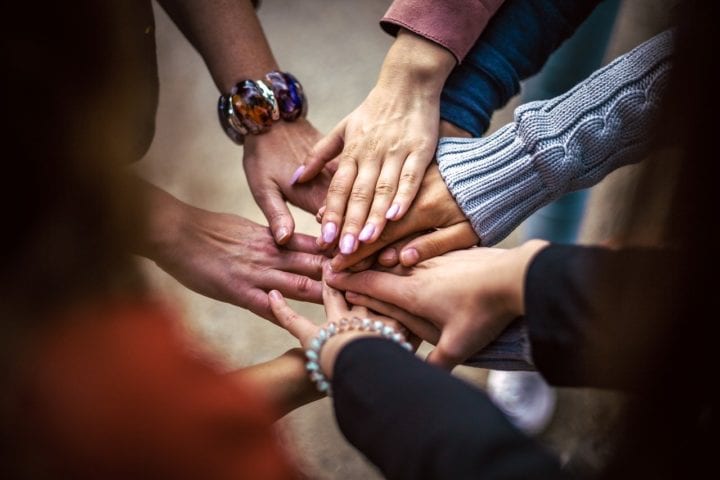As originally reported in the Cincinnati Children’s, Brittney writes how she came into the world of rare diseases when her and her husband Michael decided to adopt a baby who was placed with them for foster care. They knew he had a genetic condition, but at the time, he was still undiagnosed. Part of taking on parenthood of their new four month old, Calvin, meant taking on his health conditions and finding out how to make his life more comfortable. Brittney jumped in. Two years after Calvin joined their family, they got his diagnosis: an ultra rare genetic condition called mandibulofacial dysostosis with microcephaly.
Mandibulofacial Dysostosis with Microcephaly
Mandibulofacial dysostosis with microcephaly or MFDM is an ultra rare disorder that causes the head to not grow as fast as the body, with time causing it to appear very small in comparison to the body. It additionally causes varying developmental delays or impairments, heart issues, short stature, skin growths, ear abnormalities, and other effects. It is the result of a gene mutation on the EFTUD2 gene.
Post-Diagnosis
The family was lucky to be in Cincinnati with easy access to the Cincinnati Children’s Hospital which had appropriate care for his intensive condition. Still, receiving the diagnosis was lonely. As Brittney began to search for resources and a community, she discovered there wasn’t much out there. There was only 60 other patients total with the disease at the time. She tried to connect to other patients and found one thousands of miles across the world in Australia. She continued her search and managed to find a couple more patients sharing her son’s experience, but there wasn’t an existing network connecting these patients or a community to immerse her son into. Cases were few and far between, and each patient was more or less on their own in the journey. She wanted more. So she began to build a community herself.
Building a Network
She created a Facebook Page, hoping families would stumble upon it themselves. They did. Over the next five years, the group grew to include 250 members with relationships to the disease. By creating a community center and a network between families with the disease, they could organize, generate research, inform themselves about the disease, and share experiences to create a space to discuss the effects the disease has on their lives.
In 2019, the parents decided to organize the first ever MFDM specific conference to bring together the many perspectives on the disease. They had almost 100 attendees come to her hometown with families and medical specialists who were able to share their unique scopes. This is a vast shift from the lack of community when Calvin first received his diagnosis. She described the conference as incredible, with different Cincinnati doctors describing how to care for the many symptoms of the disease. As they swapped stories, the doctors also benefited from the wide range of patients all together, and they were able to give surveys and swab tests. She explained this inspired another go in 2020, focusing on family connections for the next addition. Brittney explained,
“I’ve found that when you have a child with developmental delays, you compare your child to other typical kids. But being able to compare them to other kids on the same level is much more helpful. That’s part of what this support group and conference have done for us.”
She describes how difficult it was when Calvin didn’t know anyone who looked like him or shared his experience. Having a new network with other families opened up a dialogue that never existed before, and it was the first time that Calvin wasn’t alone in his illness. She described the day Calvin finally was introduced to a bunch of kids with MFDM. She wrote,
“Kids with the condition look very similar to one another because of their craniofacial differences. They almost look like brothers and sisters. When Calvin got to meet other kids last year who look like him, it was very powerful. He fit in. We all like to fit in. I think that simple act of these kids being around others who are like them can make their lives a little easier. So, that’s why I do what I do.”
Check out the Facebook group here.





